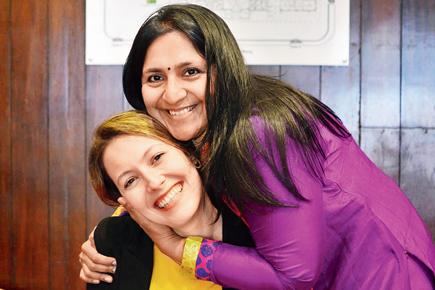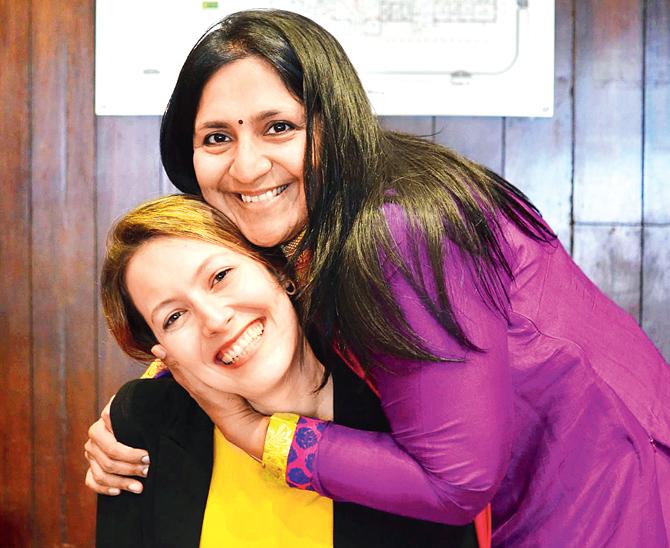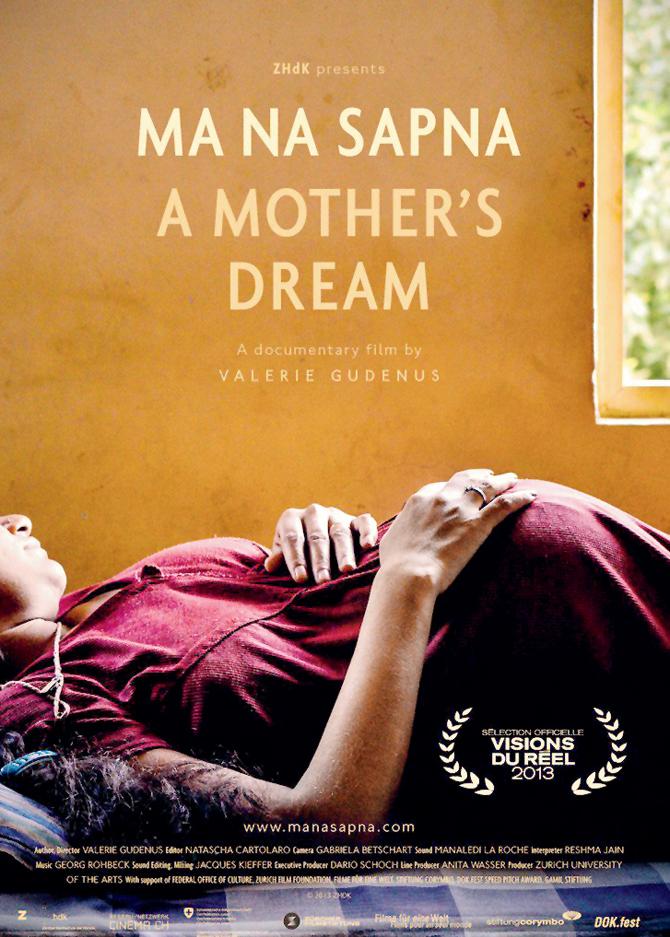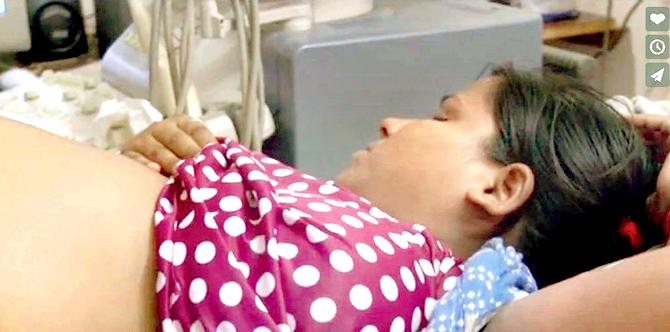The film Ma Na Sapna – A Mother's Dream (2011) traces the journey of surrogate mothers at a clinic in Anand, Gujarat

Reshma Jain and Valerie Gudenus
![]() The film begins with a voiceover of a woman: "You know it belongs to someone else. All you are doing is taking care of it, raising it in your womb."
The film begins with a voiceover of a woman: "You know it belongs to someone else. All you are doing is taking care of it, raising it in your womb."
It is the voice of a surrogate, at India's largest surrogacy clinic in Anand. Directed by Valerie Gudenus and funded by the University of Switzerland, the film, Ma Na Sapna – A Mother's Dream released in 2011 and was recently screened at the NCPA, Nariman Point.
ADVERTISEMENT

Reshma Jain and Valerie Gudenus
The story of surrogacy
"The film was produced during my master studies at the Zurich University of the Arts. I was looking for a documentary film idea that would talk about how our world has become very interconnected and interdependent. My mother sent my an essay written by American sociologist Arlie Hochschild about the outsourcing of emotional services which now has then become a book (The Outsourced Self). This essay mentioned commercial surrogacy in India. It was the first time I had heard about it and I started researching about it. In 2011, when you talked about commercial surrogacy you were bound to talk about India because the biggest clinic focusing on surrogacy was the Akanksha Infertility Clinic in Anand," says Valerie, who came to India in February 2011 to talk to surrogate mothers, doctors and couples to find out if there was a story to be told.
 A film poster
A film poster
"I was interested in the way the women were living together, bonding over common experiences and struggling with their differences. Of course now the Akanksha Clinic has changed immensely (now over 100 surrogate mothers live in the completely new clinic) and also the ban on surrogacy for foreign couples will change the future of the clinic."

A still from the film, Ma Na Sapna – A Mother's Dream
Camera woman Gabriela Betschart, sound woman Manaledi La Roche, interpreter Reshma Jain and Valerie built a tight relationship, bonding over intense experiences and an equally intense working regime. "In the beginning it was hard to film without understanding most of what was going on. Reshma helped translating as much as possible, bridging the linguistic and cultural gap, but of course when you are observing there is no space for constant translation. After a while we learned to communicate with the women through body language and the women got used to us being there," says Valerie.
"Over two months, we shot 86 hours and the final film is 1.5 hours. Permission was taken from all the women who appear in the film, as some didn't want to reveal their identity – as they had either lied to their family about the surrogacy or considered it a societal taboo," says Jain, the Gujarati-English translator of the film.
Mother for a short while
The distinct characters in the film stand out – Madhu, the surrogate agent and scout, Dr Nayna Patel, whose entry in an Audi makes her stand apart in social and financial stature from her patients, who revere her as a goddess.
The clinic serves as a home to the surrogate women for the nine months till they deliver, after which they are paid. While the question arises, that the sum Rs 3 lakh that each surrogate earns for bearing a child, and Rs 3.75 for twins is too less, it is an amount the patient nor their families have every seen before. Most of the times, the money is spent to buy a house.
The surrogates live together become friends over time and help each other on bad days. While many are able to keep their emotions under control, most break down when they have to give the children away. Women share their reasons for becoming surrogates and share their dreams of going back to their lives, to their own children, after the deliveries.
Gudenus manages to capture the harsh reality of this business, the happiness the mothers get for a short while and the hope that each of them clings on to.
Touching stories
Valerie was most moved by Parul's story, who had divorced her alcoholic husband after he had continually beaten her and their three children. She had decided to become a surrogate mother to improve her children's lives but because within her community surrogacy was still quite stigmatised she couldn't tell her children what she was doing. When we were filming she was 9 months pregnant with twins for a Gujarati/New Zealand couple. She hadn't seen her own children for 10 months. Someone had found out what she was doing and had told everyone. They had told her children that she was a bad person and her son had stopped talking to her because of it. She was so downcast and told us that before she had become a surrogate mother she was poor but she at least she had the respect of her community. Now she would have money but no respect," says Valerie, adding that when she had given birth to the twins the commissioning couple gave her a wrong phone number and she felt disappointed that they wouldn't keep in touch.
Recently the group went back to Anand to show the women the film and met Parul again. "She beamed at us and hugged us and seemed to healthy and happy. It was such a joy to see her so well. She had even brought one of her daughters to see the film."
 Subscribe today by clicking the link and stay updated with the latest news!" Click here!
Subscribe today by clicking the link and stay updated with the latest news!" Click here!







